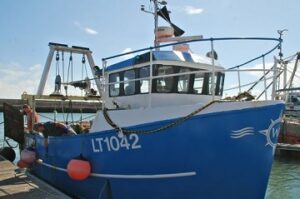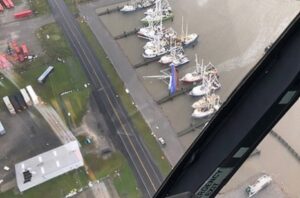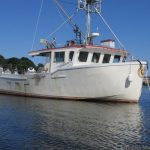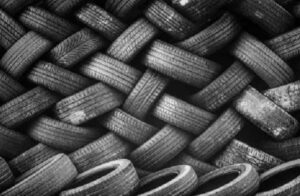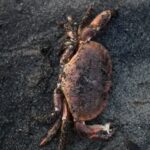Daily Archives: June 15, 2023

The fishermen
Jose Quezon’s hands moved like the parts of a well-oiled machine. It was April 1 2021, and the Northern Osprey, a 20m fishing trawler that sails out of Kilkeel, Northern Ireland, was in UK waters near the Isle of Man. The boat and its crew, four Filipinos and one British captain, had been at sea since dawn two days before. But Quezon had been at sea for the majority of his adult life. He had worked as a deckhand in the Philippines for 14 years and, since 2009, on British-flagged boats fishing out of UK ports. Technically, Quezon lived in the Philippines. But each year, he boarded a plane in Manila and flew to Belfast in Northern Ireland or Aberdeen in Scotland. When he arrived, his visa gave him 48 hours to transit through the UK to join a ship, which he’d live on for the next eight to 12 months. >click to read< 20:56

NOAA says revised analysis could allow Southeast king salmon troll fishing, despite ruling
The National Marine Fisheries Service hasn’t ruled out the possibility of opening the summer troll season for king salmon in Southeast Alaska, despite a federal judge’s recent ruling to the contrary. The service’s Alaska regional administrator, Jon Kurland, told a roomful of trollers during a June 7 meeting in Sitka that the agency was working hard to correct the problems identified in the federal lawsuit. The Wild Fish Conservancy in Washington state sued to stop the Southeast Alaska troll season, seeking to protect endangered Southern Resident killer whales’ food sources. >click to read< 12:57

Conservation must trump profit; SEA-NL calls on DFO to close window on high-grading in crab fishery
Seaward Enterprises Associations of Newfoundland and Labrador (SEA-NL) has called on the federal minister of Fisheries and Oceans to take immediate action to close a window that’s been opened by processors/buyers to allow for high-grading in the snow crab fishery. “Conservation must trump profit, which is obviously not the case with the processing sector that is out to scrape every last cent from the inshore fleet at the expense of the future health of the stock,” says Ryan Cleary, SEA-NL’s Executive Director. For years there has been an industry-managed two-price system for snow crab in Newfoundland and Labrador — with a higher price paid for crab with a greater than four-inch carapace (currently $2.25/lb), and lower price for smaller, but still legal-sized crab ($1.90/lb). >click to read< 11:07

SNP and Greens face fight on HPMAs as salmon farmers and fishers join forces in ‘Seafood Coalition’
Scotland’s nationalist government is facing a huge fight on its proposal for Highly Protected Marine Areas (HPMAs), amid claims they are being used to appease the Scottish Green Party. The country’s salmon farmers and fishers have joined forces to launch a petition against the move at Holyrood. The ‘Seafood Coalition’ wants to see the plans, which could limit activities such as fishing and aquaculture in 10 per cent of Scottish waters, scrapped. The SNP and Greens claim the zones will “provide high levels of protection” for the marine environment. The coalition includes Salmon Scotland, the Scottish Fishermen’s Federation, Seafood Scotland, Scottish Association of Fish Producers’ Organisations, Community Fisheries Inshore Alliance and Scottish Seafood Association. >click to read< 10:28
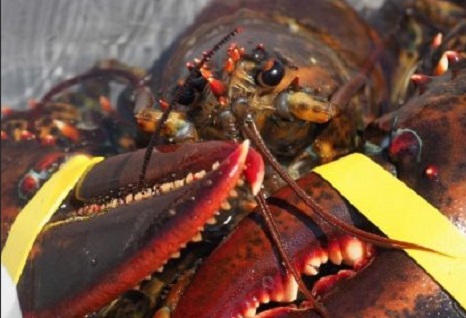
Today is National Lobster Day
In colonial times and in the early years of the republic, lobster was most often eaten by the lower classes, servants, slaves, and apprentices—it was not until much later that it became a delicacy. This was largely because lobster was so plentiful and cheap. European settlers reported they found them washed ashore in piles two feet high. In these early years, they were known as the “cockroach of the ocean,” and prisoners were even known to refuse to eat them. Although Native Americans ate crustaceans, they also commonly used lobster as fertilizer and on fishing hooks. >click to read< 09:39
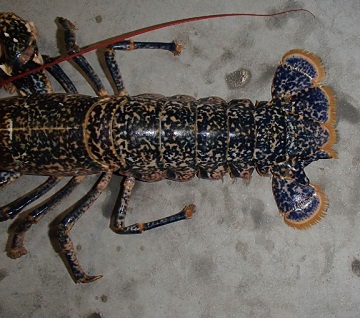
Cornwall fishing father and son illegally caught pregnant lobsters
Officials said Andrew, 30, and 54-year-old Leslie Burt may have even scrubbed the shellfish to remove their eggs so it was not apparent they had been carrying them. Pleading guilty to seven charges relating to catching lobsters and poor record keeping, the pair were sentenced at Truro Magistrates’ Court on Wednesday for also retaining and landing lobsters with mutilated tails in their boat Isabelle. On December 19, 2022, the fishing vessel Isabelle PW64 returned to the port of Padstow after a six-day fishing trip both inside and outside the Cornwall Inshore Fisheries and Conservation Authority (IFCA) district. Cornwall IFCA officers conducted a routine inspection of the catch of crabs and lobsters and discovered 28 berried female lobsters and two lobsters with damage to their tails. >click to read< 08:40
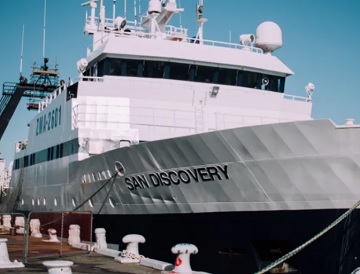
New Zealand: Fishing industry boasts of lowest carbon emissions – with caveats
“In 25 years at sea, I’ve seen quite a lot of changes,” Epiha says. “For example, they’re not shy at upgrading boats. Now we’re starting to see results from our fuel usage, fuel savings, reduced carbon footprint.” The 64-metre San Discovery, which he captains, is a deep-sea trawler that can produce fillets, headed and gutted fish, squid tubes, fishmeal and fish oil – all processed, packaged and labelled to export standards. “What I can hand-on-heart say is, we do care a lot about the environment,” he says. “It’s engrained in the way we operate, adjusting gear to make sure that it’s less drag on the bottom, easier to tow, because all that adds up to less fuel usage.” >click to read< 07:49


































